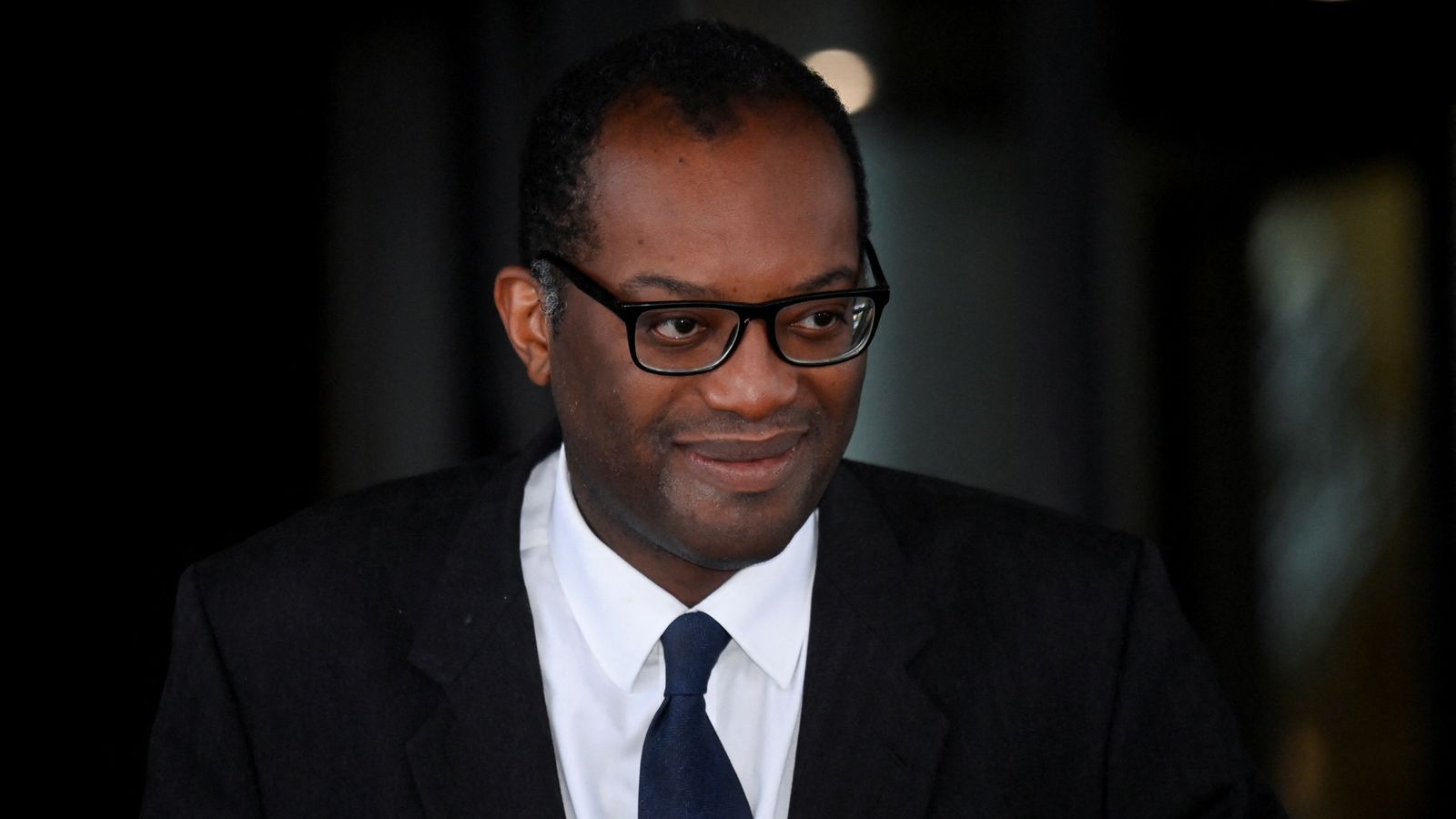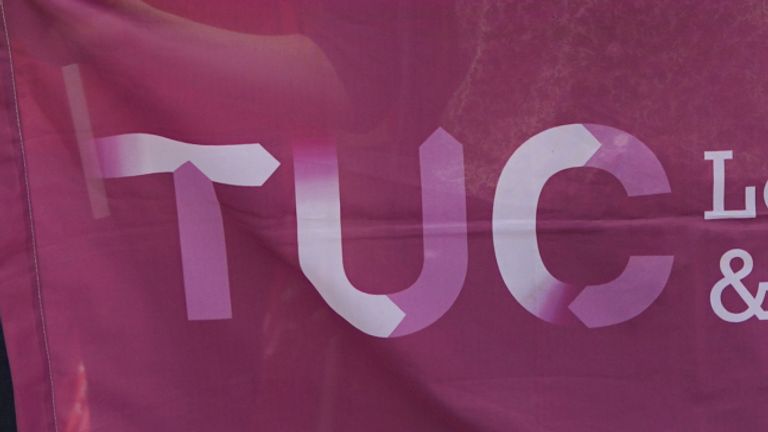Unions win challenge against agency staff filling in for striking workers


Unions have won a legal challenge against a law change which allowed companies to use agency staff to fill in the roles of striking workers.
The change was introduced when Kwasi Kwarteng was business secretary under Boris Johnson in July last year.
Mr Justice Linden was scathing in his written judgement.
Politics latest: Rishi Sunak says public sector pay rises ‘final’
He said the minister – who went on to become Liz Truss’s ill-fated chancellor – was “not sufficiently” interested to ask for analysis from civil servants so he could assess how the law change would actually be implemented.
Mr Justice Linden said the “decision was to proceed at exceptional speed” despite concerns from the civil service about the “effect on parliamentary scrutiny” and “without any further consultation at all”.
The change in law was introduced as a statutory instrument – meaning there was less scrutiny than on typical legislating.
Unions condemned the move as “reckless” at the time, and launched the legal action almost immediately.
It amended the Conduct of Employment Agencies and Employment Businesses Regulations 2003.
Advertisement
The legal challenge was brought by a group of more than 10 unions, including Aslef, Unite and Usdaw, and coordinated by the Trades Union Congress (TUC).
Richard Arthur, the lawyer for the TUC, said: “The judgment makes clear that the then secretary of state had a staggering disregard to his legal obligations when introducing legislation that enabled employers to engage agency workers to cover the duties of striking workers. He was driven solely by a political ideology to meet a self-imposed deadline to implement the regulations in the face of mounting industrial action across the country.
“He took this decision notwithstanding advice he received that it was likely to be counter-productive to the problem he wanted to address and was being rushed through without regard for the duty to consult, which was a fundamental legal requirement.
“This is bad law-making made ‘on the hoof’ and the court has rightly held the government to account”.
Paul Nowak, the TUC general secretary, said bringing in agency staff during strikes “risks endangering public safety”.
Sharon Graham, the head of the Unite union, said: “The government’s decision to allow employers to recruit agency workers to undermine legal strike action was a cynical move to back their friends in business and weaken workers’ legal rights to withdraw their labour.”
The government’s legal team argued the law changes had been “modest”.
Mr Justice Linden added: “This was not an all or nothing decision: there could have been a shortened consultation, and/or one with a more limited group of consultees.
“There is no sign that this option was even considered.
“This was despite the lack of an impact assessment at the time of the decision, and despite the evidence available to Mr Kwarteng being that the measure would have negligible beneficial impact in the short term and, quite possibly, an adverse impact on the government’s ability to settle ongoing industrial disputes.”
A spokesman for Thompsons Solicitors, which represented the TUC and unions, said after the ruling: “Mr Justice Linden found that the government had acted unlawfully in not consulting with the unions.”
A Department for Business and Trade spokesperson said: “We are disappointed with the High Court’s decision as we believed the decision to repeal the ban on agency workers covering strikes complied with our legal obligations.
Click to subscribe to the Sky News Daily wherever you get your podcasts
“The ability to strike is important, but we maintain there needs to be a reasonable balance between this and the rights of businesses and the public.
“We will consider the judgement and next steps carefully.”
